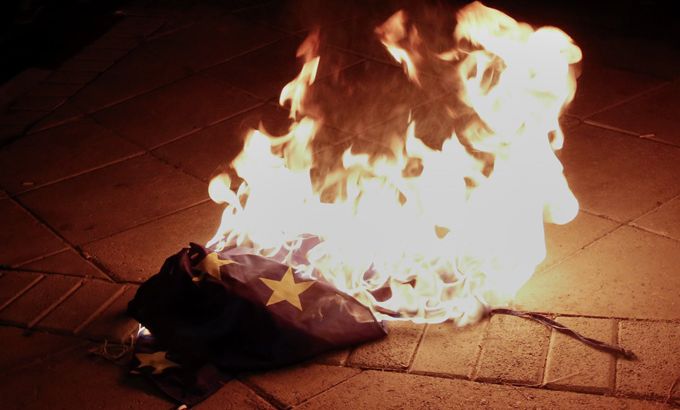Cyprus bank restrictions could last ‘a month’
Curbs imposed after island secured bailout to be lifted over a period of about a month, foreign minister says.

Banks in Cyprus have ended their first day of business after nearly two weeks of a lockdown, with the foreign minister saying capital controls could remain in force longer than expected.
“A number of restrictions will be lifted and gradually, probably over a period of about a month according to the estimates of the central bank, the restrictions will be fully lifted,” Ioannis Kasoulides told reporters on Thursday.
Keep reading
list of 4 itemsFacebook, Instagram face EU scrutiny over addictive effects on children
Who benefits from US tariffs on Chinese imports? Experts weigh in
Biden slaps new tariffs on Chinese imports, ratcheting trade war
Kasoulides’s comments came as Cypriot banks reopened for the first time after the government was forced to accept a tough EU rescue package to avoid bankruptcy.
Cypriots queued calmly to withdraw limited amounts of cash, but there was no sign of a run on deposits, as had been feared.
Banks were shut for nearly two weeks while the government negotiated a $13bn international bailout from the International Monetary Fund, the European Central Bank and European Union.
Cyprus is the first country in Europe’s single currency zone to impose losses on bank depositors.
The government initially said the controls would remain in place for a week, subject to review.
Economists say they will prove hard to lift as long as the economy is in crisis.
Bank staff turned up for work early on Thursday as cash was delivered by armoured trucks, and queues of a dozen or more people formed at bank branches in the capital, with uniformed security guards on duty.
A lot of money had already left electronically. Figures published by the Central Bank of Cyprus showed that savers from other euro zone countries withdrew 18 percent of their deposits from the stricken island in February, as talk of a tax on bank accounts gained ground.
Overall private sector bank deposits in Cyprus fell by 2.2 percent to 46.4 billion euros last month, after a similar drop in January.
To help the Cyprus banks weather the crisis, the ECB flew in $6.4bn in cash overnight from Frankfurt, a German newspaper reported.
Probe panel appointed
The government said it had appointed a panel to investigate the banking meltdown and look into claims of junior bondholders.
“It will have a broad mandate,” said Constantinos Petrides, under-secretary to the Cypriot president.
“It will investigate criminal, civil and political responsibilities.”
The capital controls decree was taped to the windows of bank branches and staff handed out copies to customers.
In Nicosia, the capital, there was relief, but some apprehension about what might happen.
Finance minister Michalis Sarris had earlier imposed temporary limits on daily withdrawals to $385 to prevent a run on the banks.
He also banned the cashing of cheques and ordered those travelling abroad not to take more than 1,000 euros out of the country.
Al Jazeera’s Simon McGregor-Wood, reporting from Nicosia, said the government is “reassuring people that this is a temporary measure, that they will lift it as soon as possible”.
“These capital controls fly in the face of the rules and regulations that set up the eurozone. The eurozone is not meant to have these types of controls,” he said.
Hundreds of demonstrators marched from the European Union’s offices in the capital to Parliament on Wednesday night to protest the bailout plan.